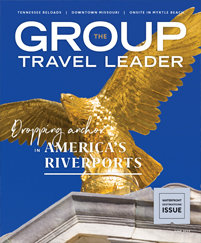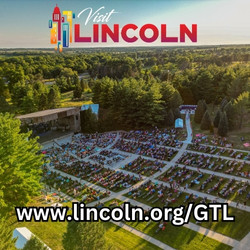From one of the world’s top orchestras to an Irish pub with several live music stages, the Keystone State is full of shows worth catching. While it’s no surprise that Philly offers nearly endless options, the City of Brotherly Love can’t claim a monopoly on culture.
Groups might be surprised at the depth of entertainment in smaller towns like Pittsburgh, Erie and Lancaster. A major perk to attending performances in Pennsylvania is the historic, long-running theaters that often house them.
Philadelphia
The most spectacular venue in historic Philadelphia is the modern Kimmel Center for the Performing Arts. Recognizable by its glass vaulted rooftop, the regional performing arts center is home to the Philadelphia Orchestra, widely regarded as one of the best in the world. In addition to the orchestra, groups can catch a jazz quartet, a French circus, pops orchestra or performances by touring soloists and ensembles.
“The venue is unbelievably nice,” said Brian Said, executive director of tourism with the Philadelphia Convention and Visitors Bureau. “It was built to the right specifications so that you can enjoy the best sound.”
With two main stages, a black-box theater and smaller performance spaces, the center handles a constant influx of guests. The largest hall is shaped like a cello with acoustics worthy of one of the world’s best orchestras, and the 650-seat hall uses a rotating stage.
Next door, on South Broad Street, nicknamed Avenue of the Arts, is the Academy of Music, where groups can see the best shows from Broadway Philadelphia and Opera Philadelphia. The theater also plays host to a season of six programs by the renowned Pennsylvania Ballet, among them holiday favorite George Balanchine’s “The Nutcracker.” Built in 1857, the venue is the oldest opera house in the United States still being used for its original purpose.
Also on the Avenue of the Arts is the Merriam Theater, which has hosted touring Broadway shows longer than any other Philadelphia venue. The Merriam Theater is also a second performance space for the ballet.
If groups want to try out Philadelphia’s university district, Said suggests World Café Live, a modern, sleek venue that attracts mainly indie, acoustic and folk performances. It’s family friendly and includes shows and food geared toward children. The venue also hosts a Philly Rising series that showcases up-and-coming local artists.
Philadelphia’s most popular and most historic theater is the Walnut Street Theatre. It’s the oldest continually operating theater in the United States, celebrating 207 seasons of live entertainment. The company produces three musicals and two plays each season and is the most subscribed company in the world with 55,000 season ticket holders. There’s still plenty of room for nonsubscribers, Said said. “Harvey,” the comedy, is showing until March and will be followed by “Peter and the Starcatcher” and “Sister Act.”
Pittsburgh
The Steel City’s transformation over the past quarter-century includes the emergence of a thriving cultural district downtown that is studded with entertainment options. The cornerstone of the district is Heinz Hall for the Performing Arts. Built as an elegant movie house in 1927 and left for dead in 1965, Heinz Hall was nearly lost to demolition. But the Pittsburgh Symphony Orchestra stepped in, reconstructed the building and now performs there year-round. Other big acts — Jay Leno is next in line — make up the 200 live shows hosted at Heinz Hall each year.
“To have the opulent Heinz Hall, which is regarded as the most magnificent theater between New York and Chicago, located near the center of downtown speaks to Pittsburgh’s cultural relevance,” said Lynne Glover, spokeswoman for Visit Pittsburgh.
At the other end of the spectrum is Quantum Theatre, a company that stages traditional and avant-garde shows in nontheater spaces around Pittsburgh. Because Quantum publishes show locations well in advance, groups should have no trouble finding the spot, whether it’s a cemetery, a parking garage or an upscale condominium lobby.
“It’s really unique theater productions that are staged in places that aren’t theaters,” Glover said. “And this theater company has put Pittsburgh on the map for cutting-edge theater.”
Quantum’s last season included a world-premiere opera version of “A Winter’s Tale.” The opera, which took place in the 10th-floor music hall of the Union Trust Building, borrowed instrumental and vocal music by Vivaldi, Handel, Lully, Bach and others, and merged it with Shakespeare’s play. This season’s lineup includes a play by modernist Henrik Ibsen.











